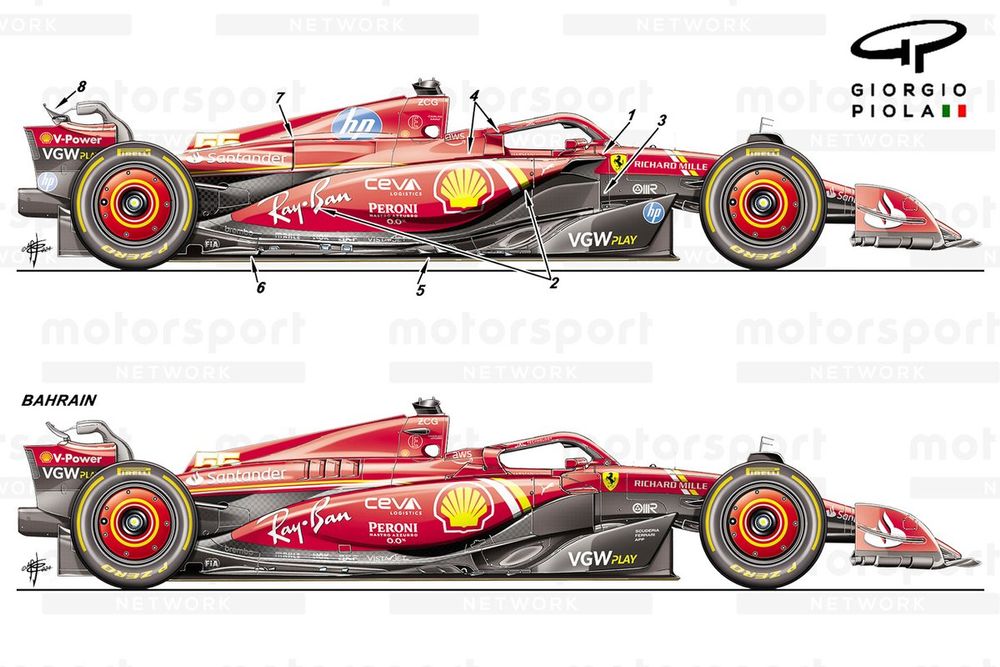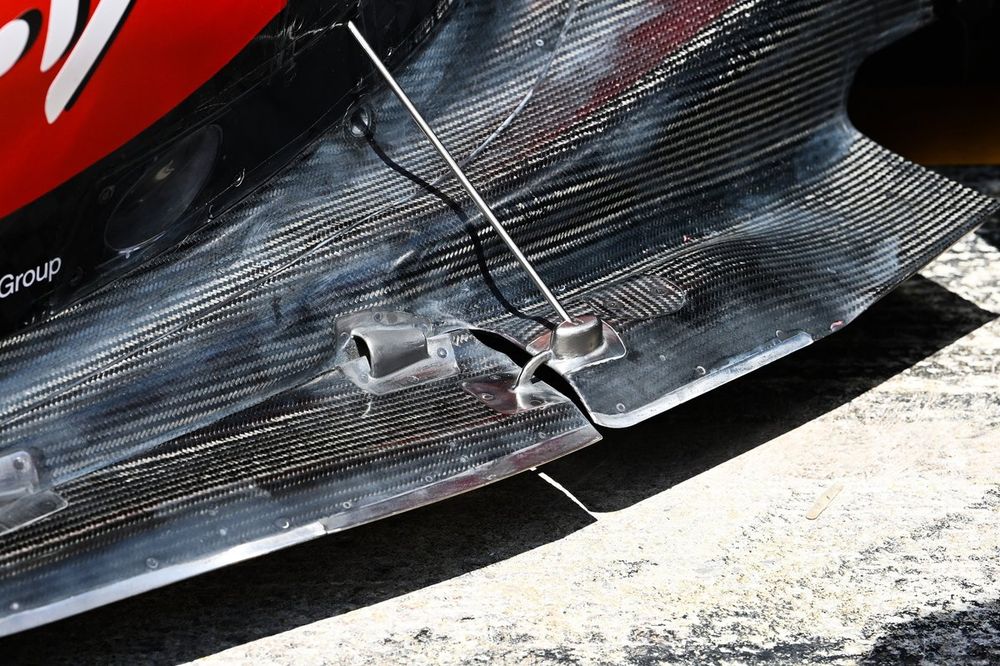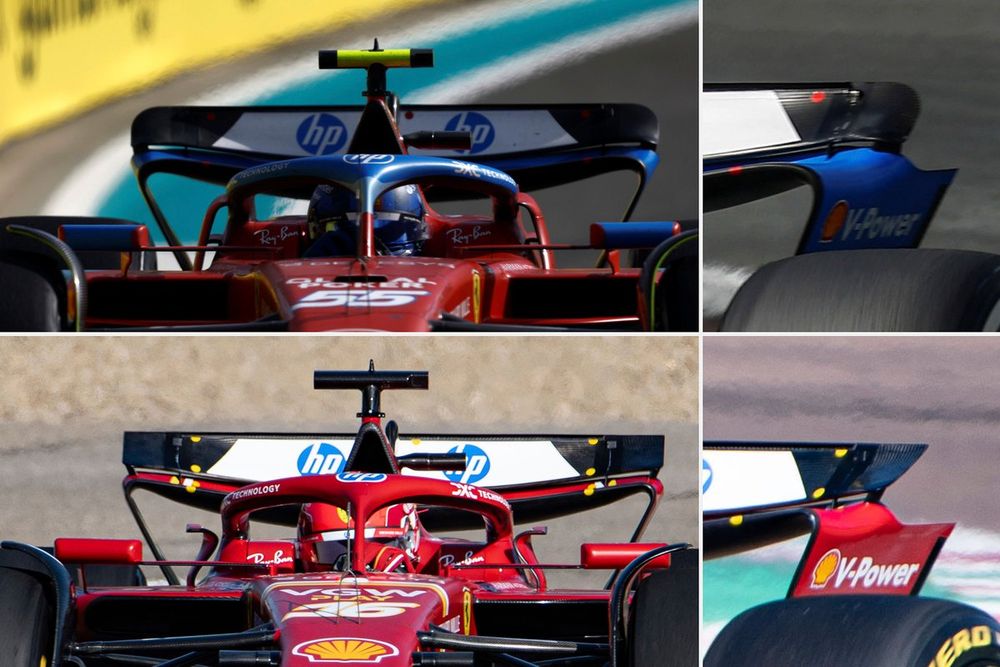The team did so to ensure it had enough time if there were teething problems for what is quite a substantial change, not only to the aerodynamic performance of the car but also to how the power unit and ancillaries are cooled.
A package of this magnitude has taken some time for Ferrari to develop, prepare and manufacture, with the team clearly working around Formula 1’s globe-trotting schedule to deliver the updates upon the series’ return to Europe.
The logic behind this decision will undoubtedly have been driven by the last two races having also been sprint events, leaving only a single practice session at each in which to assess the difference in behaviour and find the right set-up with the new parts for the competitive session.

Ferrari SF-24 side Imola comparison (numbered)
Photo by: Giorgio Piola
The most obvious change to the SF-24 is in the adoption of an overbite sidepod inlet arrangement [1], which follows more closely in the footsteps of Red Bull, albeit other teams have other overbite variants.
In Ferrari’s case, it has opted to connect its new horizontal inlet with the bypass duct’s inlet beside the chassis [3], creating more of a P-shaped inlet, similar to the layout on the Alpine and Mercedes.
This has resulted in the outlet beside the cockpit and halo being discontinued as part of the update though, with the vanes also altered as a consequence [4], as they’ve now become even more stylised and look like a Cobra when viewed from the front.
The change from an underbite to an overbite alters the height of the sidepod’s undercut, providing more room to capture the airflow as it moves down and around the bodywork, even if that does mean there’s now also the inlet framed within that region.
The upshot of the change is that the surfaces thereafter can also be optimised to improve flow to the rear of the car, with the waistline also adjusted quite considerably as part of the update [2].
The overbite also means that there’s no longer an inlet in the path of the sidepod’s upper surface, with the flow over the sidepod likely improved as a consequence.
Reconfiguring the sidepod bodywork and cooling parameters, the engine cover and cooling outlets have also been refreshed, with a similar single but larger outlet to the one used in Japan deployed as part of the package tested in Fiorano [7].
There’s also some detail changes on the surface of the floor that indicate there’s a heap of work going on under the SF-24 too. The scrolled forward section of the edge wing [5] has been altered, with a more aggressive camber applied, while the strakes are also bolder than before to match.
There are further changes to the edge wing’s profile downstream, whilst the support bracketry around the floor’s split line has also changed, as rather than using the support spar’s bracket to hold both sections in position, there’s now another horseshoe bracket thrown into the mix that allows more segmentation of the two sections [6].
Interestingly, it’s an arrangement we’ve seen in 2023 (below, left), suggesting the team decided to use a solution that likely had performance benefits in the past that they couldn’t fully exploit.


The rear wing has also been altered [8], as the team has made some adjustments to both the tip section and the endplate cutout as they look to both increase the upper flap’s wingspan, while also altering the tip vortex to improve the wing’s efficiency.
The tip section now has a much squarer profile, rather than being rolled over to match the shape of the mainplane ahead, which has resulted in the support bracket between the two sections also being made shorter and moved further inboard.
These changes then expose more of the mainplane’s trailing edge and endplate cutout, allowing the designers a little more freedom in terms of optimising their shape.








